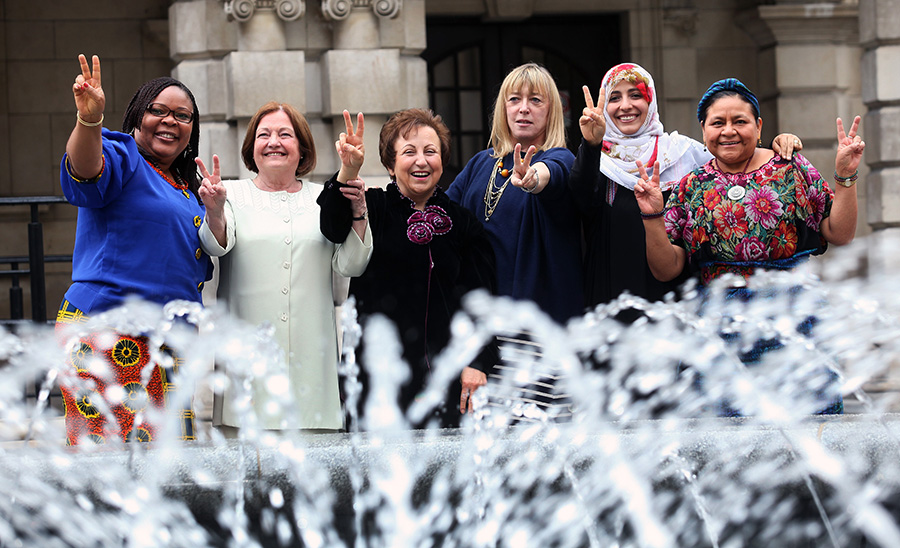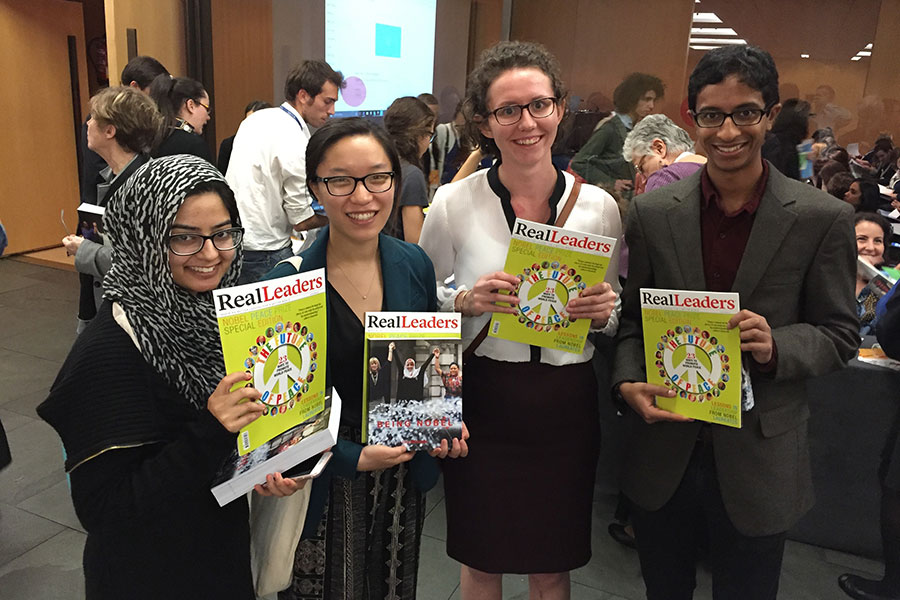The tragic death of three children, from a skirmish between the Irish Republican Army (IRA) and British troops in 1976, pushed two women into action and galvanized a divided community. It was an unprecedented display of what women can achieve when they join forces.
Anne Maguire was walking to the shops with her three children on 10 August 1976, in Belfast, Ireland, when tragedy struck. British troops opened fire on a suspected IRA gunman driving nearby, killing him instantly. The car went out of control and mounted a pavement, colliding with Anne Maguire and her children. All three, Joanne (8), Andrew (6 weeks) and John (2) were killed.
After the deaths, Anne’s sister, Mairead Maguire, decided that ordinary people, and not politicians or soldiers, were going to solve their problems. “The Troubles,” as the three-decade-old conflict in Northern Ireland became known, was a low-level war from the late 1960s to 1998, between nationalists, who mainly self-identified as Irish and Roman Catholic, and unionists, who primarily self-identified as British and Protestant.
She joined forces with Betty Williams (who passed away on 17 March 2020), who had witnessed the tragedy, and Ciaran McKeown, and they went on to start a movement called Peace People. Their message to the warring factions in Northern Ireland, and to the world, was clear: violence doesn’t work.
In the aftermath of the children’s deaths, Williams began collecting signatures for a peace petition and assembled 200 women for a march through Belfast. On the day of the funeral, 10,000 Catholic and Protestant women marched to the burial site, and despite being physically attacked, they increased that number to 35,000 people by the end of that month – all calling for peace between the republican and loyalist factions. It was reminiscent of other times in history, when women decided they’d had enough and decided to act, such as the women who marched on the South African apartheid parliament in 1952, under the rallying cry, “You strike the women, you strike a rock!”
Williams and Maguire (pictured above, Williams on the left) jointly won the 1976 Nobel Peace Prize for their work, and in 2006 co-founded the Nobel Women’s Initiative in support of peace efforts around the world.

In contrast with the prevailing political climate at the time, Maguire was convinced that the most effective way to end the violence was not through more violence, but re-education. Williams resigned from Peace People in 1980 and Maguire continued her involvement in the organization, taking on a more global agenda, and addressing an array of social and political issues around the world. For Maguire, peace is not about gentle asking, but vigorous, sometimes life-threatening, campaigning.
Maguire opposed the 15-year detention of Myanmar opposition leader Aung San Suu Kyi, petitioned Turkey for the end to political torture, called on China to release imprisoned Peace Laureate Liu Xiaobo, supported whistleblower Chelsea Manning, campaigned against the Iraq war and has been shot at in Palestine. Peace is hard work, and at age 76, Maguire is showing no signs of slowing. It’s been a lifelong commitment. At age 32, Maguire was the youngest Nobel Peace Prize laureate until Malala Yousafzai’s peace prize in 2014.
“I’m convinced from my 35 years of peace-making and traveling around the world, that there is a huge movement of change going on,” says Maguire. “Once that movement begins to link up and mobilize, it will become extremely effective. We have the women’s movement, the environmental movement, the human rights movement – all these movements for social and political change. What they’re saying is: We don’t want war, we don’t want nuclear weapons, we want human rights to be upheld, we want justice, we don’t want poverty, we don’t want to be in a rich world where people are getting richer, and the poor are getting poorer. The question is: How do we get that message across to our political leaders?”




































